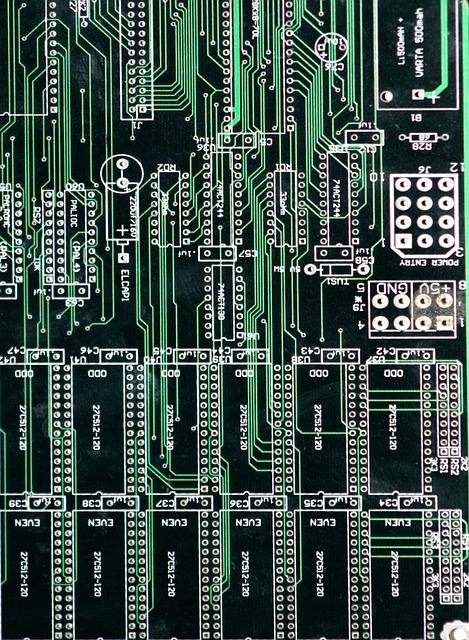# AI Technology in Healthcare: Revolutionizing Patient Care and Streamlining Medical Processes
The integration of artificial intelligence (AI) into healthcare has become a pivotal force driving transformative changes in patient care and medical processes. As healthcare systems worldwide grapple with increasing demands for efficiency, accuracy, and personalized treatment, AI emerges as a powerful ally. This article explores how AI technology is reshaping the landscape of healthcare, focusing on its applications in diagnostics, treatment personalization, and operational efficiency.
## Enhancing Diagnostics with AI
One of the most significant impacts of AI technology is its ability to enhance diagnostic accuracy. Traditional diagnostic methods often rely on human expertise, which can be subject to error and bias. By contrast, AI systems utilize vast datasets and advanced algorithms to analyze medical images, lab results, and patient histories with remarkable precision. For instance, machine learning algorithms can identify patterns in imaging data that may elude even the most experienced radiologists. Studies have shown that AI can match or even exceed human performance in detecting conditions like breast cancer, diabetic retinopathy, and lung diseases.
Furthermore, AI’s capacity for rapid data processing allows for real-time analysis, which can be crucial in emergency situations. When a patient presents with symptoms of a stroke, for example, AI algorithms can quickly assess imaging data to identify the type of stroke and recommend immediate interventions. This speed not only enhances patient outcomes but also alleviates the burden on healthcare professionals, allowing them to focus on patient care rather than administrative tasks.
In addition to imaging, AI is revolutionizing the field of genomics. By analyzing genetic data, AI can help identify predispositions to certain diseases, enabling proactive measures and personalized treatment plans. As a result, patients receive tailored care that considers their unique genetic makeup, which can significantly improve treatment efficacy.
## Personalizing Treatment Plans
The personalization of treatment plans is another area where AI is making significant strides. Historically, medical treatment has often followed a one-size-fits-all approach, which may not account for individual variability in response to therapies. AI technology, however, allows for a more nuanced understanding of patient needs. By analyzing a multitude of factors—such as genetics, lifestyle, and previous treatment responses—AI can assist healthcare providers in crafting customized treatment regimens.
For example, AI-driven algorithms can sift through large datasets to identify which treatments have been most effective for patients with similar profiles. This capability enables clinicians to make informed decisions based on empirical evidence rather than anecdotal experience. As a result, patients benefit from therapies that are more likely to succeed, minimizing the trial-and-error approach that often characterizes traditional medicine.
Moreover, AI is facilitating the development of precision medicine, which tailors medical treatment to the individual characteristics of each patient. With AI’s ability to analyze complex datasets, researchers can uncover new insights into disease mechanisms and treatment responses. This not only enhances the effectiveness of treatments but also reduces the risk of adverse effects, ultimately leading to improved patient satisfaction and outcomes.
## Streamlining Medical Processes
Beyond direct patient care, AI technology is streamlining various medical processes, leading to greater operational efficiency in healthcare settings. Administrative tasks such as scheduling, billing, and patient record management often consume valuable time and resources. AI can automate these processes, allowing healthcare providers to focus more on patient care.
For instance, AI-powered chatbots can handle appointment scheduling and answer common patient inquiries, significantly reducing the workload on administrative staff. By employing natural language processing, these chatbots can understand and respond to patient questions in real time, enhancing the patient experience while improving operational efficiency.
Additionally, AI can optimize resource allocation within healthcare facilities. Predictive analytics can forecast patient admissions based on historical data, enabling hospitals to manage staffing and resources more effectively. This proactive approach not only ensures that patients receive timely care but also helps healthcare organizations control costs and reduce waste.
Another area where AI is making a difference is in the management of electronic health records (EHRs). By utilizing AI algorithms, healthcare providers can extract meaningful insights from EHR data, identifying trends and patterns that can inform clinical decision-making. This capability enhances the quality of care while also supporting compliance with regulatory requirements.
## Conclusion
AI technology is undeniably revolutionizing the healthcare landscape, offering innovative solutions that enhance diagnostic accuracy, personalize treatment plans, and streamline medical processes. As healthcare systems continue to evolve, the integration of AI will play a crucial role in addressing the challenges of modern medicine. By harnessing the power of AI, healthcare providers can deliver more effective, efficient, and patient-centered care, ultimately leading to improved health outcomes and a more sustainable healthcare system.
The journey toward widespread AI adoption in healthcare is still underway, but the potential benefits are immense. As stakeholders across the industry embrace this technology, the future of healthcare looks promising—one where AI not only complements human expertise but also empowers patients and providers alike.











